This kit can only be used for scientific research, not for medical diagnosis
Mouse rabies virus IgG antibody (PRV-IgG) ELISA detection kit
user's Guide
Detection principle
The kit uses double antibody one-step sandwich enzyme-linked immunosorbent assay (ELISA). To the coated microwells pre-coated with mouse rabies virus IgG antibody (PRV-IgG) capture antibody, add the specimen, standard, and HRP-labeled detection antibody in sequence, incubate and wash thoroughly. The color is developed with the substrate TMB, which is converted into blue under the catalysis of peroxidase and into the final yellow under the action of acid. The color depth is positively correlated with the mouse rabies virus IgG antibody (PRV-IgG) in the sample. Measure the absorbance (OD value) at 450nm with a microplate reader to calculate the sample concentration.
Sample collection, processing and storage methods
1. Serum: Use a test tube that does not contain pyrogens and endotoxins. Avoid any cell stimulation during the operation. After collecting blood, centrifuge at 3000 rpm for 10 minutes to quickly and carefully separate serum and red blood cells.
2. Plasma: EDTA, citrate or heparin anticoagulation. Take the supernatant by centrifugation at 3000 rpm for 30 minutes.
3. Cell supernatant: centrifuge at 3000 rpm for 10 minutes to remove particles and polymers.
4. Tissue homogenate: Add tissue to the right amount of saline and mash. Take the supernatant by centrifugation at 3000 rpm for 10 minutes.
5. Preservation: If the sample is not tested in time after collection, please aliquot it in one dose and freeze it at -20 ℃ to avoid repeated freezing and thawing. Thaw at room temperature and ensure that the sample is thawed evenly and fully.
Bring your own items
1. Microplate reader (450nm)
2. High-precision sampler and tip: 0.5-10uL, 2-20uL, 20-200uL, 200-1000uL
3. 37 ℃ thermostat
Operation notes
1. Store the kit at 2-8 ° C and equilibrate at room temperature for 20 minutes before use. The concentrated washing liquid taken out of the refrigerator will have crystals, which is a normal phenomenon. The water bath is heated to completely dissolve the crystals before use.
2. The slats not used in the experiment should be immediately returned to the ziplock bag, sealed (dry at low temperature) and stored.
3. The standard dilution can be regarded as a negative control or blank; the sample after pretreatment does not need to be diluted, just take 10μL and add it.
4. Perform the incubation operation strictly in accordance with the time, amount of liquid and sequence indicated in the manual.
5. Shake all liquid components thoroughly before use.
Kit composition
name
96-well configuration
48 hole configuration
Remarks
Microplate
12 holes × 8
12 holes × 4 strips
no
Standard product (1000IU / L)
0.6mL
0.6mL
Dilute according to the instructions
Standard dilution
6mL
3mL
no
Sample diluent
6mL
3mL
no
Detection antibody-HRP
10mL
5mL
no
20 × washing buffer
25mL
15mL
Dilute according to the instructions
Substrate A
6mL
3mL
no
Substrate B
6mL
3mL
no
Stop solution
6mL
3mL
no
Sealing film
2 sheets
2 sheets
no
Instructions
1 serving
1 serving
no
Ziplock bag
1
1
no
Note: The standard product is diluted with standard product diluent in order: 1000, 500, 250, 125, 62.5, 31.25IU / L.
Reagent preparation
Dilution of 20 × washing buffer: 1:20 dilution of distilled water, ie 1 part of 20 × washing buffer plus 19 parts of distilled water
Washing method
1. Manually wash the plate: throw away all the liquid in the hole, fill each hole with the washing liquid, leave the liquid in the hole after standing for 1 min, pat dry on the absorbent paper, and wash the plate 5 times in this way.
2. Automatic plate washing machine: Inject 350μL of washing liquid into each well, soak for 1min, and wash the plate 5 times.
Steps
1. Take out the required slats from the aluminum foil bag after equilibrating at room temperature for 20 min. The remaining slats are sealed with a ziplock bag and put back at 4 ° C.
2. Set up standard wells and sample wells, add 50μL of standard products of different concentrations to the standard wells;
3. Add 10μL of the sample to be tested first, and then add 40μL of the sample diluent;
4. Then add 100 μL of detection antibody labeled with horseradish peroxidase (HRP) to each well of the standard and sample wells, seal the reaction well with a sealing plate, and incubate for 60 min in a 37 ° C water bath or incubator.
5. Discard the liquid, pat dry on the absorbent paper, fill each well with the washing solution, let stand for 1min, shake off the washing solution, pat dry on the absorbent paper, and repeat washing the plate 5 times (you can also wash the plate with a washing machine)
6. Add 50 μL of substrate A and B to each well, and incubate at 37 ° C in the dark for 15 minutes.
7. Add 50μL of stop solution to each well, and measure the OD value of each well at 450nm wavelength within 15min.
Result judgment
Draw standard curve: In the Excel worksheet, the standard product concentration is used as the abscissa, and the corresponding OD value is used as the ordinate.
Kit performance
1. Accuracy: The correlation coefficient R between the linear regression of the standard product and the expected concentration is greater than or equal to 0.9900.
2. Sensitivity: The minimum detection concentration is less than 1.0 IU / L.
3. Specificity: Does not cross-react with other soluble structural analogs.
4. Repeatability: The coefficients of variation within and between panels are less than 15%.
5. Storage: 2-8 ℃, protected from light and moisture.
6. Validity: 6 months
Disclaimer
1. The kit is for research use only, and should not be used for clinical or human experiments, otherwise all the consequences will be borne by the experimenter, and the company will not be responsible.
2. Strictly follow the instructions, and the experimenter violates the instructions, and the consequences will be borne by the experimenter.
A small key chain can be different.Key Chain, also known as Keychain, Key Ring, key hanger, etc. The materials for making the Key Chains are generally metal, leather, plastic, wood, etc. It is a daily article that people carry with them every day.
What we're going to introduce are Carabiner Keychains, which are ornaments that hang on Keyrings. Choosing a key that matches your favorite Keychain not only reflects your personal mood and personality, but also shows your taste and brings you a happy mood. Suitable for men and women.
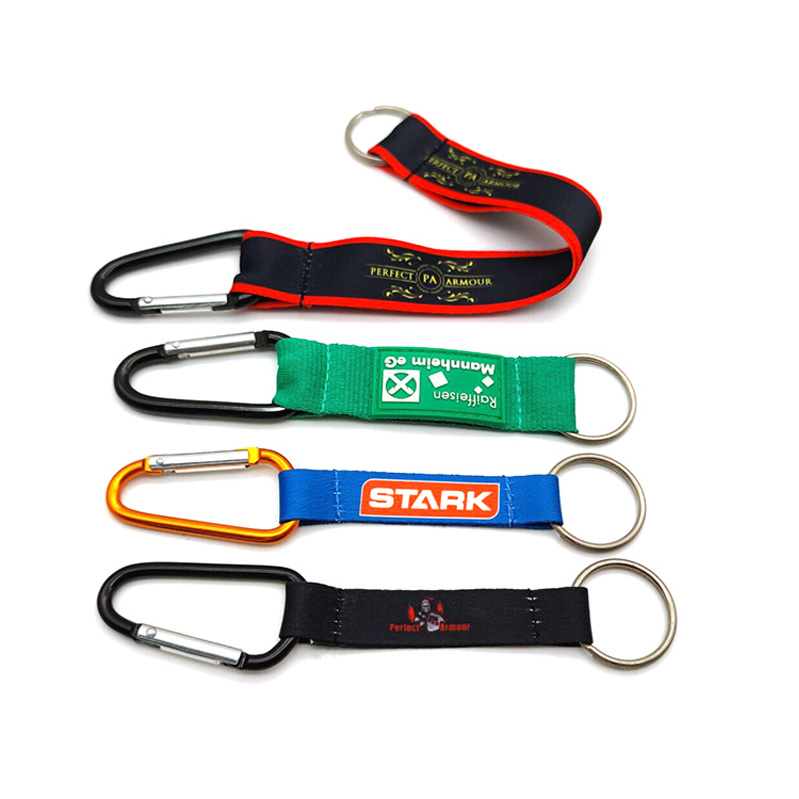
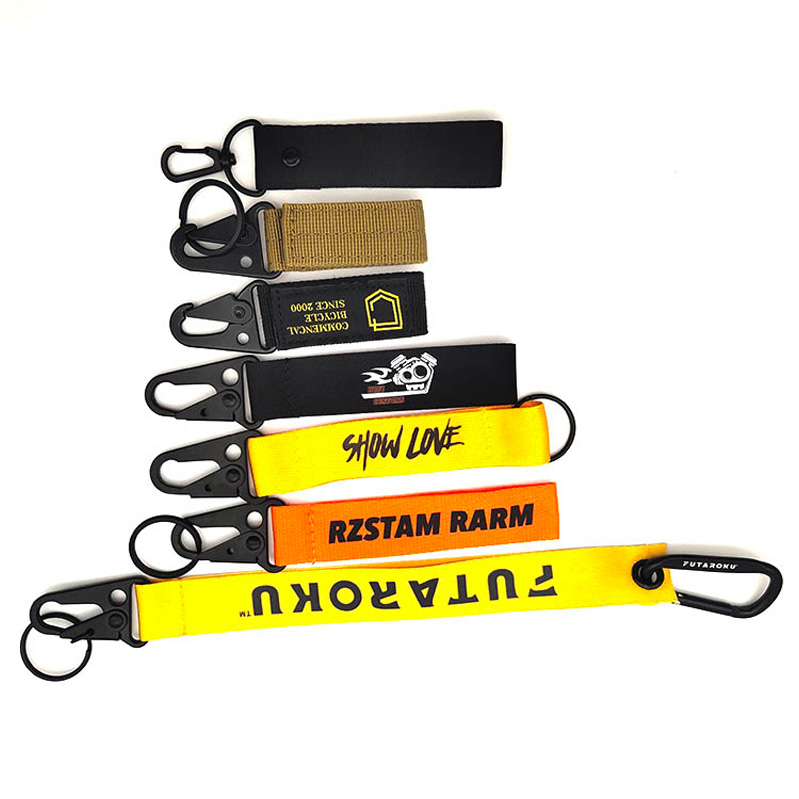
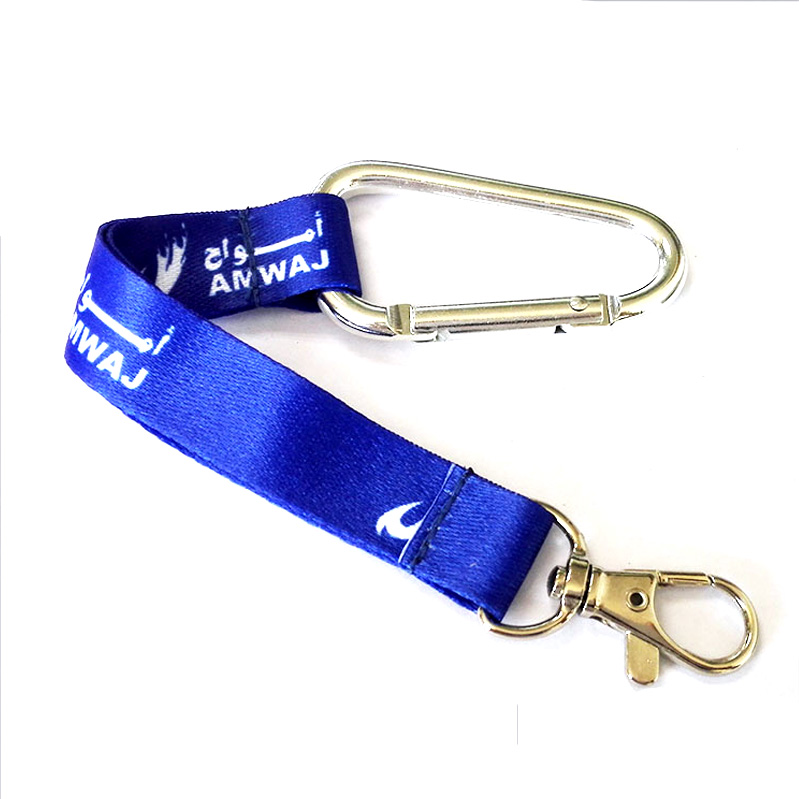
The Carabiner, Key Ring and Nylon Strap constitute a very fashionable and popular Carabiner Keychain, and the Carabiner can be installed and removed at any time, the accessories on the Keychain Carabiner can be replaced with other styles, we also have other styles of accessories available.

This Woven Keychain is used with the Olecranon Carabiner Hook, it is a very cool Keychain With Carabiner, and the Olecranon color can choose other colors.
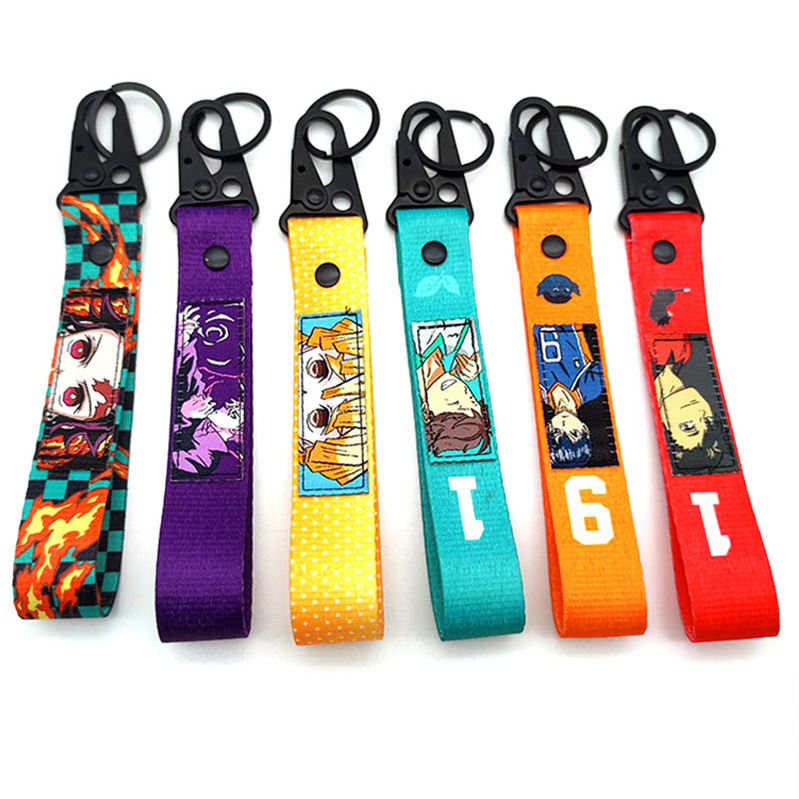
Sublimation Carabiner Keychain, cartoon characters are generally complex in color, choosing thermal transfer printing can achieve the best printing effect.
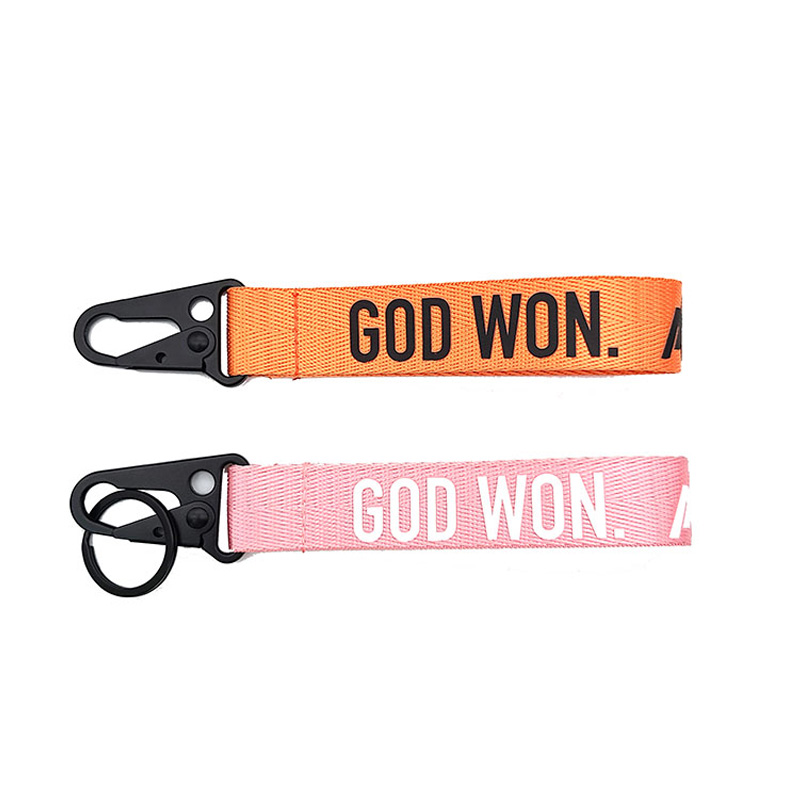
Silk-screened olecranon Carabiners Keychain, you can print some simple logos or a single color.
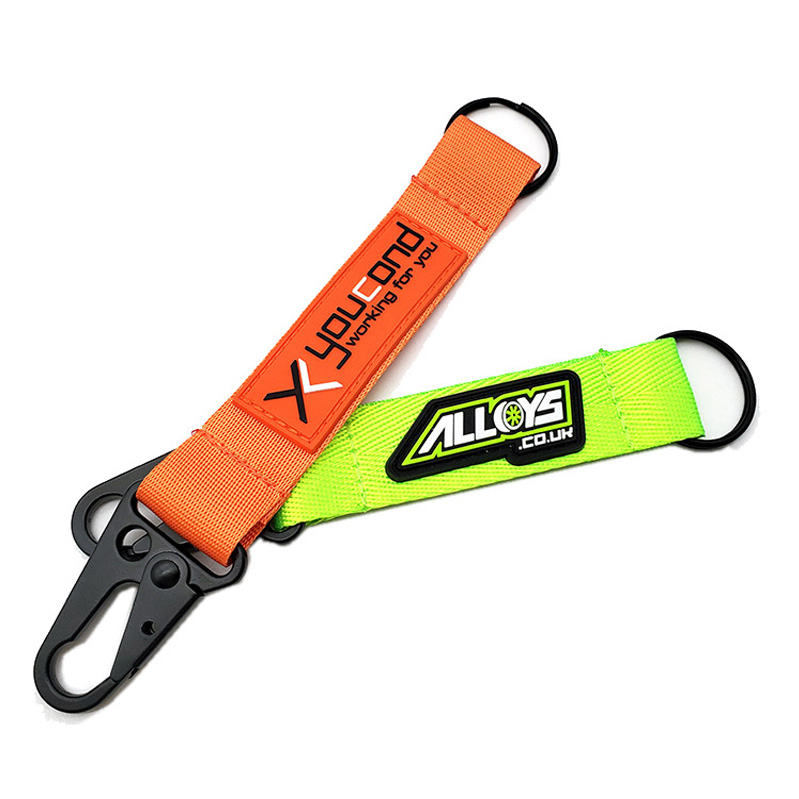
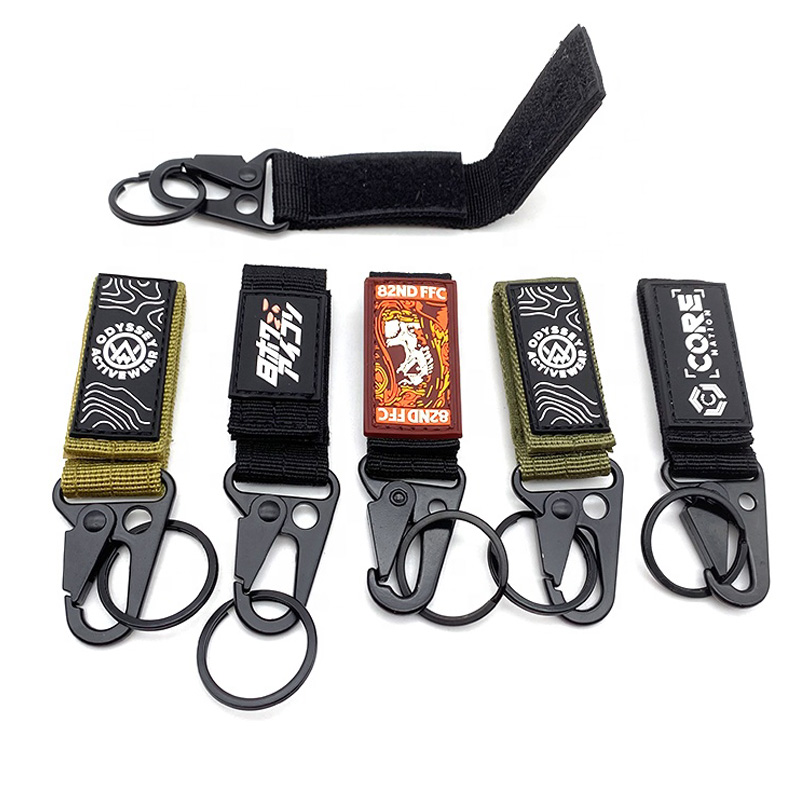
The Rubber Patch Olecranon Keychain Carabiner with velcro and without velcro are very cool Keychaina and extremely convenient to use.
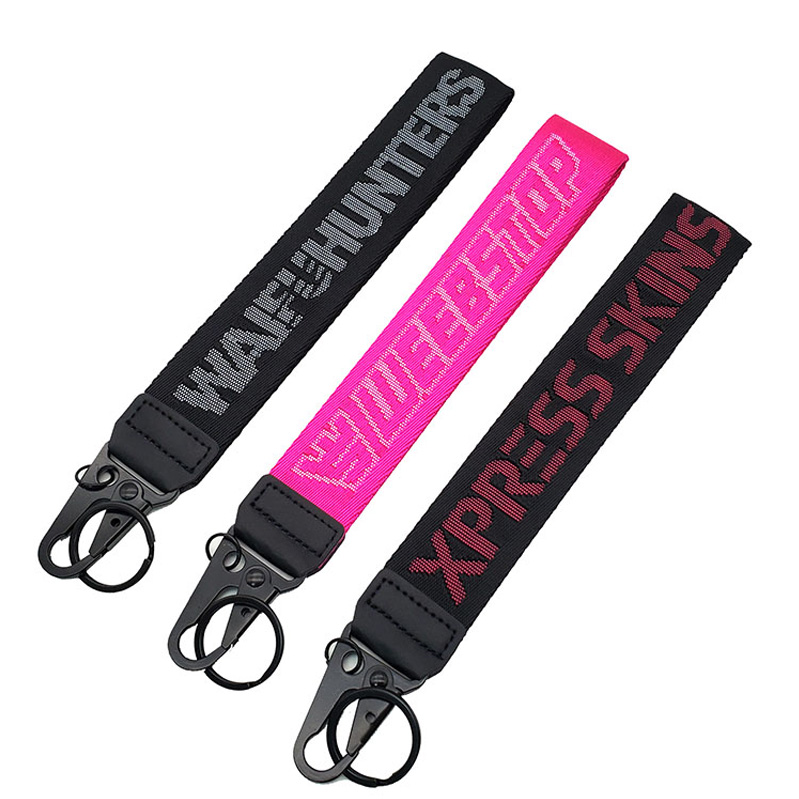
The thickness of the webbing of the Jacquard Keychain With Carabiner is generally thicker and more advanced.
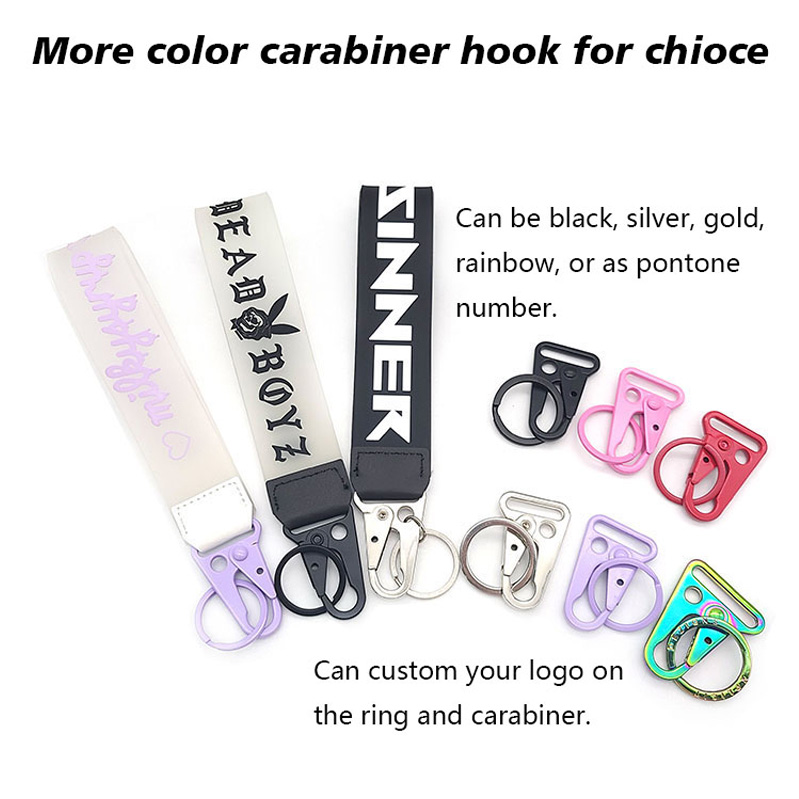
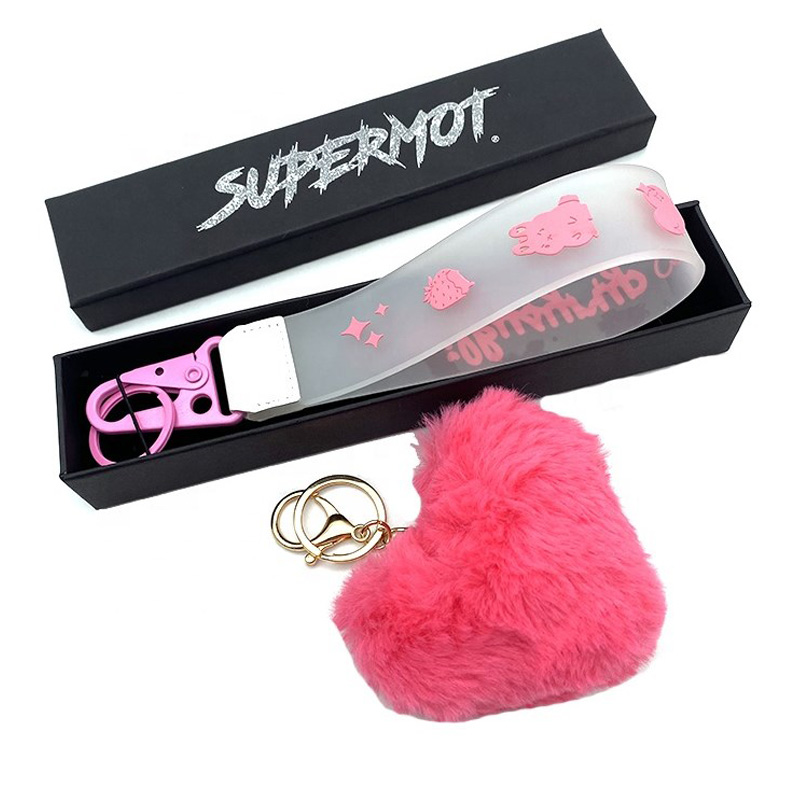
The Pvc Keychain is softer, it can be hung on the bag to add a fashion sense to the bag, and our packaging can be customized in size and logo.
Welcome to YYX to inquire about different styles of Carabiner Keychains!
Carabiner For Keychain,Keychain With Carabiner,Carabiner Keychains,Keychain Carabiner,Carabiners Keychain
Shenzhen Yiyixing Zipper Manufacture Co.,Ltd , https://www.yyxzip.com